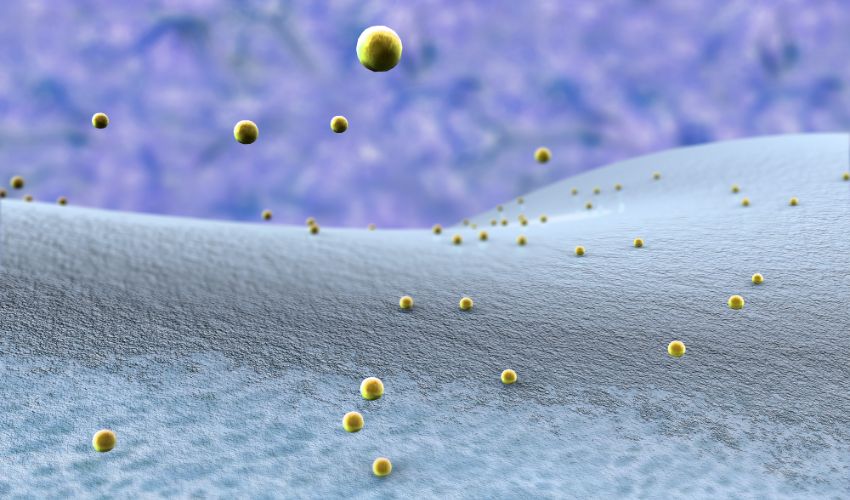The immune system is a complex network of cells, tissues, and organs that work together to protect the body from harmful pathogens, including bacteria, viruses, and cancer cells. It is a remarkable defense mechanism that can recognize and respond to foreign invaders with incredible specificity and speed. However, when the immune system is weakened, either due to illness, poor nutrition, or lifestyle factors, it becomes less effective in fighting off infections and diseases. In this article, we will explore the essential functions of the immune system, factors that can compromise its function, and practical strategies to strengthen its function.
The Key Functions of the Immune System
The immune system serves two primary functions:
- To identify and neutralize harmful pathogens that enter the body.
- To recognize and eliminate abnormal cells, including cancer cells.
To achieve these functions, the immune system is composed of various components, including white blood cells, antibodies, lymphatic vessels, and lymphoid organs. When a pathogen enters the body, the immune system responds by deploying a range of defensive mechanisms, such as:
- Producing antibodies that recognize and bind to the pathogen.
- Mobilizing immune cells to attack and destroy the pathogen.
- Creating memory cells that remember the pathogen and can quickly respond to future invasions.

Factors that Affect the Function of the Immune System
Several factors can weaken the immune system and compromise its function, including:
- Poor nutrition: A diet lacking in essential nutrients, such as vitamins and minerals, can impair the immune system’s ability to produce antibodies and fight off infections.
- Chronic stress: Prolonged stress can trigger an overproduction of stress hormones, which can suppress the immune system and make it more susceptible to infections and diseases.
- Lack of sleep: Sleep is essential for the proper functioning of the immune system. Chronic sleep deprivation can impair the immune response, making it more challenging to fight off infections.
- Sedentary lifestyle: Lack of physical activity can weaken the immune system and increase the risk of infections.
Strategies to Boost the Immune System
Fortunately, there are several practical strategies that can help strengthen the immune system, including:
- Eating a healthy diet: A balanced diet rich in fruits, vegetables, whole grains, lean proteins, and healthy fats can provide essential nutrients that support the immune system’s function.
- Managing stress: Techniques such as meditation, deep breathing, and yoga can help reduce stress levels and support the immune system’s function.
- Getting enough sleep: Aim for seven to eight hours of sleep per night to support the immune system’s function.
- Engaging in regular exercise: Regular physical activity can boost the immune system’s function and reduce the risk of infections.
- Avoiding smoking and excessive alcohol consumption: Smoking and excessive alcohol consumption can weaken the immune system and increase the risk of infections.

FAQs:
Can stress weaken the immune system?
Yes, chronic stress can trigger an overproduction of stress hormones, which can suppress the immune system and make it more susceptible to infections and diseases.
Can eating a healthy diet boost the immune system?
Yes, a balanced diet rich in essential nutrients can provide the immune system with the nutrients it needs to function correctly.
Can lack of sleep affect the immune system’s function?
Yes, chronic sleep deprivation can impair the immune response, making it more challenging to fight off infections.
How can exercise boost the immune system?
Exercise can boost the immune system’s function by increasing the production of antibodies and immune cells that can recognize and neutralize pathogens.
Is it necessary to avoid smoking and excessive alcohol consumption to support the immune system’s function?
Yes, smoking and excessive alcohol consumption can weaken the immune system and increase the risk of infections.
Conclusion:
The immune system is a remarkable defense mechanism that protects the body from harmful pathogens and abnormal cells. However, several factors can weaken its function, including poor nutrition, chronic stress, lack of sleep, and a sedentary lifestyle. By adopting practical strategies such as eating a healthy diet, managing stress, getting enough sleep, engaging in regular exercise, and avoiding smoking and excessive alcohol consumption, you can strengthen your immune system and reduce the risk of infections and diseases. Remember, a healthy immune system is crucial for maintaining optimal health and wellbeing.






















